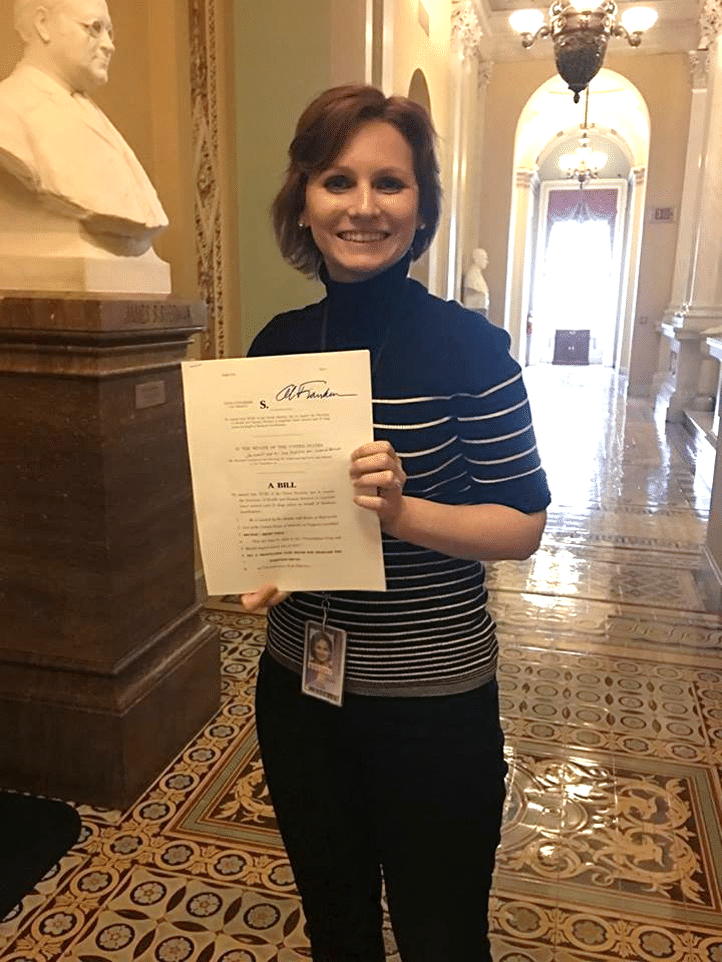I was 18 when my life was turned upside down by cancer. My mother was diagnosed with a highly aggressive malignancy after a colonoscopy due to a flair-up of Crohn’s disease. She spent the next two months in the hospital after the surgery to remove the malignancy left her near death with adhesions, requiring a second, corrective surgery, and a long recovery.
To this day, I don’t really understand how my family held it together and, even though my mom has been cancer free for more than 10 years now, that experience has impacted everything that I have done since.
Fast forward 15 years: I finished my doctoral work at St. Jude Children’s Research Hospital and moved to Washington D.C. to start a Congressional Science Policy Fellowship. This fellowship places scientists in Congressional offices with the intent of elevating the role of science in Congressional policy.
During my fellowship, I had the honor of working on the health portfolio for Senator Al Franken (D-MN), bringing my scientific perspective to diverse issues from hospital payment policies, to Measles outbreaks, to prescription drug pricing. As a member of the Senator’s staff, I worked with the Senator frequently to ensure that he stayed abreast of relevant health issues in a fast-paced environment. I met with constituents, researched policy, wrote memos for the Senator’s meetings, assisted him in writing legislation and speeches, and staffed him at hearings. The work was chaotic at times, but also exciting and some of the legislation that I worked on with Sen. Franken has even passed into law.

Introducing some legislation that I worked on with Senator Franken on his behalf. In the Senate, bills have to be hand-submitted and we often do this for the Senator.
I knew before I started my fellowship that the work would be hard and that politics and diverse interests would often affect my work. I had prepared to deal with the frustrations and developed strategies to keep policy moving forward despite those obstacles. Surprisingly, what I was not prepared for was meetings with patient groups.
Patients and their family members came to share with the office the stories of their chronic diseases and how federal policy was impacting their lives. I will never forget my conversation with members of the Minnesota Breast Cancer Coalition about the effect of cancer on not just the patient, but their families as well. Suddenly, the emotions of my mother’s battle with colon cancer came flooding back to me. I was physically shaken by the connection that I felt to those women. For my entire career, I had worked to further medicine through basic research and policy, but I never had the opportunity to meet the people that benefited from my work.
High-level policy-making, like research, can be a rather academic process that requires continual insight from those it impacts to maintain its relevance. It became abundantly clear to me as I worked in the Senate that patient input is too easily lost in the policy-making process. I became a Science Policy Analyst at Friends of Cancer Research to ensure that it would not. I now have the opportunity to meet patients and their families, to learn about their needs, and affect policy changes that make a difference for those individuals. At Friends, I use my scientific training and experience on the Hill to formulate beneficial policy and help move it forward, while ensuring the patient voice is always at the forefront of the work we do.
